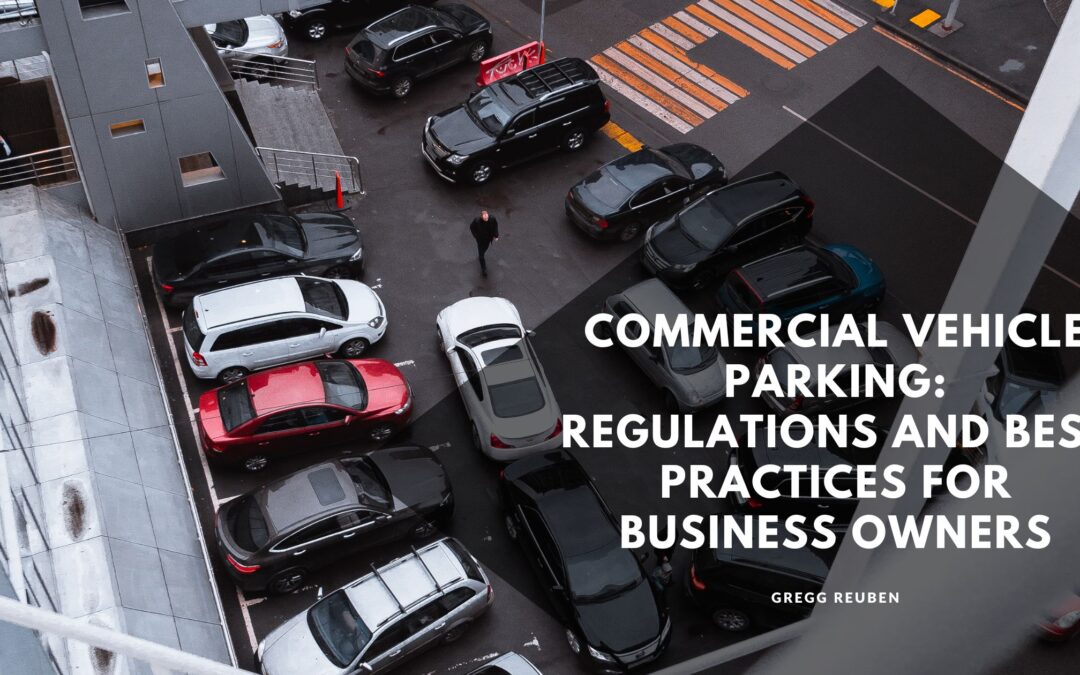Commercial vehicles are vital in transporting goods and services, and proper parking ensures smooth operations. However, commercial vehicle parking has regulations and challenges that business owners must navigate. This blog post will discuss the rules and best practices that business owners should know to ensure compliance, optimize parking efficiency, and maintain positive relationships with communities and authorities.
Understanding Commercial Vehicle Parking Regulations
- Local Zoning and Municipal Regulations: Different cities and municipalities have specific zoning regulations that govern commercial vehicle parking. Business owners must familiarize themselves with these regulations to ensure compliance and avoid penalties. This includes understanding parking restrictions, permits, and vehicle size or weight limitations.
- On-Street Parking Restrictions: Many cities have designated areas or zones for commercial vehicle parking. Business owners must know these restrictions and ensure their vehicles are parked in authorized areas to avoid fines or towing. Pay attention to time restrictions, loading zones, and other relevant signage.
- Off-Street Parking Options: Business owners should explore off-street parking options in cases where on-street parking is limited or restricted. This may include leasing or renting private parking spaces, utilizing commercial vehicle parking lots, or partnering with nearby businesses to share parking facilities during off-peak hours.
Best Practices for Commercial Vehicle Parking
- Communication with Local Authorities and Communities: Building positive relationships with local authorities and communities is essential for smooth commercial vehicle parking operations. Proactively engage with local authorities to understand parking regulations and seek guidance when needed. Communicate with neighboring businesses and residents to address concerns and ensure good neighborly relations.
- Fleet Management and Planning: Effective fleet management and planning can optimize commercial vehicle parking. Utilize technology solutions to track vehicle locations, manage parking assignments, and monitor parking availability. Businesses can minimize idle time and find efficient parking solutions by strategically planning routes and schedules.
- Parking Lot Design and Maintenance: If a business owns or manages a parking lot, it is crucial to ensure it is well-designed and properly maintained. Designate marked parking spaces for commercial vehicles, considering their size and maneuverability. Regularly inspect and maintain the parking lot to ensure a safe and functional environment for drivers.
- Safety and Security Measures: Commercial vehicle parking areas should prioritize safety and security. Install adequate lighting to enhance visibility during nighttime hours. Implement security measures such as surveillance cameras, access control systems, and secure fencing to deter theft and vandalism. Regularly assess and address any potential safety hazards to minimize accidents or damage.
- Employee Education and Training: Educate employees on commercial vehicle parking regulations and best practices. Provide training on efficient parking techniques, including proper backing and maneuvering in tight spaces. Encourage drivers to report any parking-related issues or concerns and provide them with resources and support to address challenges effectively.
- Environmental Considerations: In line with sustainability efforts, business owners should consider environmental considerations in commercial vehicle parking. Explore alternative fuel options like electric or hybrid vehicles to reduce emissions. Install electric vehicle charging stations to support the transition to greener transportation options.
Conclusion
Commercial vehicle parking is a critical aspect of business operations, and understanding the regulations and best practices is essential for business owners. By familiarizing themselves with local zoning and municipal laws, communicating effectively with local authorities and communities, implementing effective fleet management and planning, and prioritizing safety, security, and environmental considerations, business owners can ensure compliance, optimize parking efficiency, and maintain positive relationships with stakeholders. Commercial vehicle parking responsibly benefits businesses, communities, and the overall transportation landscape. By adhering to regulations and implementing best practices, business owners can navigate the complexities of commercial vehicle parking while fostering a positive and sustainable business environment.

